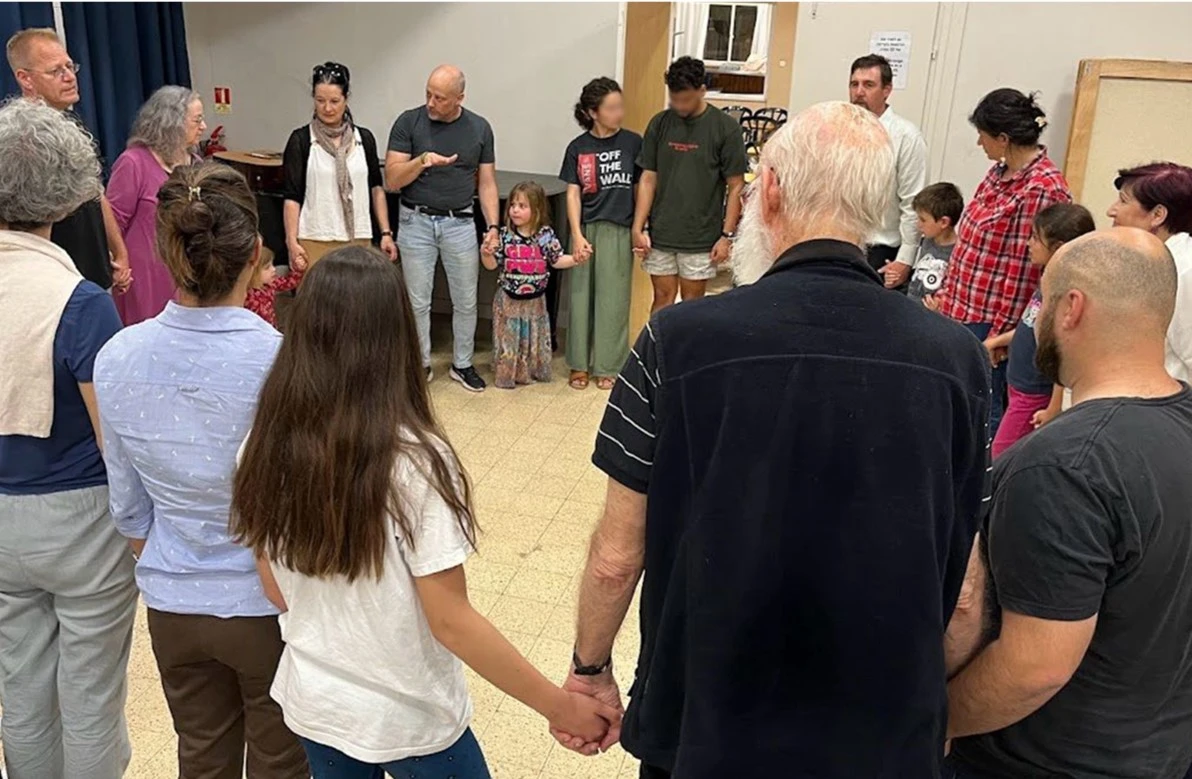Covenants are unbreakable: A biblical response to Khalil Sayegh’s theology
Responding to calls for rethinking the Church’s relationship with Israel amid Palestinian suffering

Khalil Sayegh, a Palestinian Christian activist based in the United States, has called for the Church to rethink its theological and historical relationship with Israel. Drawing from the suffering of the Palestinian people—especially in Gaza—Sayegh argues that the Church must side with the “oppressed,” even if that means severing its theological ties to Israel. In his speeches and writings, Sayegh criticizes what he calls “Jewish privilege theology” and describes Christian support for Israel as a form of religiously justified injustice.
While the pain he expresses is deeply human and real, using that pain to reshape foundational biblical doctrines is both theologically flawed and spiritually dangerous. As a Palestinian Christian, who understands some of his pain, in this article I want to offer a direct theological response to Khalil Sayegh’s claims—grounded not in politics or emotion, but in the unchanging Word of God.
God does not break His covenants — Israel remains in His plan
Khalil Sayegh promotes the idea that God’s covenant with Israel has either ended or become irrelevant in light of the New Testament and modern injustices. He suggests that the Church has replaced Israel as the recipient of God’s promises.
But Scripture clearly teaches otherwise. In Genesis 17:7, God says to Abraham:
“I will establish My covenant between Me and you and your descendants after you throughout their generations as an everlasting covenant…”
And in Romans 11:29, the Apostle Paul declares:
“For the gifts and the calling of God are irrevocable.”
Any theology that undermines this covenant—no matter how emotionally compelling—is, at its core, a challenge to God's character.
R.C. Sproul consistently taught that God's covenant with Israel remains in effect and that His promises are rooted in His unchanging character. To suggest otherwise is to misunderstand the nature of God as a covenant-keeping Lord.¹
Theology must not be built on suffering or cultural identity
Sayegh often frames his theology around his personal loss and the broader suffering of the Palestinian people. He urges Christians to read the Bible through the lens of “Palestinian reality.” But the real question is: Does truth change with our circumstances?
Scripture answers: No.
John Piper emphasizes that Christian faith must be rooted not in our present sufferings or shifting political landscapes, but in the eternal and authoritative Word of God.²
Yes, Palestinian suffering is real and deeply tragic. But to reconstruct doctrine based on pain is to build theology on shifting sand. The result is not biblical clarity, but spiritual instability.
Supporting Israel theologically does not mean endorsing every policy
A major flaw in Khalil Sayegh’s argument is his failure to distinguish between supporting Israel’s biblical role and endorsing the actions of the Israeli government.
Scripture shows that God repeatedly judged Israel for her sins—yet He never revoked His covenant with her.
While R.C. Sproul acknowledged that modern Israel, like any nation, could be critiqued politically, he held that God's sovereign election of Israel as a people in redemptive history remains part of His revealed will.³
Christians can oppose injustice, call for peace, and stand for human rights—without abandoning the truth of Israel’s continuing role in God’s redemptive plan.
A misleading narrative gaining ground in the global church
Khalil Sayegh, along with a number of other Palestinian Christian leaders, represents a growing movement within Palestinian theology that openly challenges Israel’s place in God’s redemptive plan. Unfortunately, such theological positions have influenced many believers—especially those who are young in the faith or lack consistent access to sound biblical teaching.
The Palestinian narrative, as presented in many Christian circles today, often reflects a selective telling of history. It tends to overlook key biblical and historical facts, minimize the Jewish people's longstanding connection to their ancestral land, and rarely acknowledges the reality of attacks on Israeli civilians. Instead, it often relies on emotionally charged language that frames the conflict in purely political and moral terms—usually casting Israel as the sole aggressor.
These views are being promoted widely through sermons, Christian conferences, social media, and international statements. And for many believers—particularly those unfamiliar with the full biblical picture—this narrative can be compelling, even persuasive. But it is precisely for this reason that we must continually return to the Scriptures. Only by evaluating every claim in the light of both the Old and New Testaments can we guard against the confusion of emotion with truth and prevent faith from being lost in the fog of politics, slogans, and pressure.
Denying Israel’s role is an attack on God's faithfulness
At the heart of Sayegh’s message lies a form of replacement theology, which claims that the Church is now the sole heir of God’s promises. This theology has been rejected by many evangelical theologians, especially in light of Romans 11.
Paul asks directly in Romans 11:1:
“Has God rejected His people? By no means!”
And later, in verses 25–26, he writes:
“All Israel will be saved.”
To remove Israel from God’s plan is not simply a theological oversight—it is a denial of God’s covenantal integrity.
J.I. Packer argued that to dismiss Israel’s role in redemptive history is to misunderstand the faithfulness of the God who makes and keeps covenants.⁴
Truth does not shift with political winds
Khalil Sayegh represents a growing trend within parts of the Church—a belief that justice for Palestinians requires rejecting the theological foundations that have historically affirmed God’s covenant with Israel.
But the Church is not called to choose between justice and biblical truth. We are called to uphold both. My stance is not about supporting any political side or agenda. Rather, it is a commitment to uphold the unchanging truth revealed in God’s Word, following Christ alone—apart from emotional bias or political allegiance.
The solution is not theological deconstruction, but a return to the full counsel of Scripture.
God’s covenants are not negotiable. His promises are not subject to public opinion. And His character does not change with the tides of culture or politics.
According to John Piper, one of the defining marks of true Christian maturity is holding fast to the truth of Scripture even when emotion or popular opinion pulls in another direction.⁵
Scriptures for Further Study
Genesis 17:7
Romans 11:1, 25–29
Ezekiel 36:24–28
Zechariah 12:10
Luke 21:24
Psalm 105:8–11
Footnotes:
R.C. Sproul, The Promise Keeper (Ligonier Ministries teaching series), and Chosen by God (Tyndale, 1986), especially his explanation of God’s faithfulness to His covenant.
John Piper, Desiring God (Multnomah, 2003), and blog posts at DesiringGod.org on Scripture as the foundation for theology.
Based on R.C. Sproul’s views in The Last Days According to Jesus (Baker, 1998) and his lectures on covenant theology.
Drawn from J.I. Packer’s Knowing God (InterVarsity Press, 1973) and Concise Theology (Tyndale, 1993), especially discussions on God’s covenants.
John Piper, “The Morning I Heard the Voice of God,” DesiringGod.org, January 2007.

Is All Israel News’ faith-based reporting important to you? Be part of it – help us continue by becoming a $5/month supporting partner.

Abdel-massih (Servant of the Messiah) grew up in the West Bank in a Muslim family before finding Jesus and becoming a disciple. He has been a follower of Jesus for several years.
Abdel-massih is not his real name, as revealing his identity at this time would be dangerous to himself and his family.







